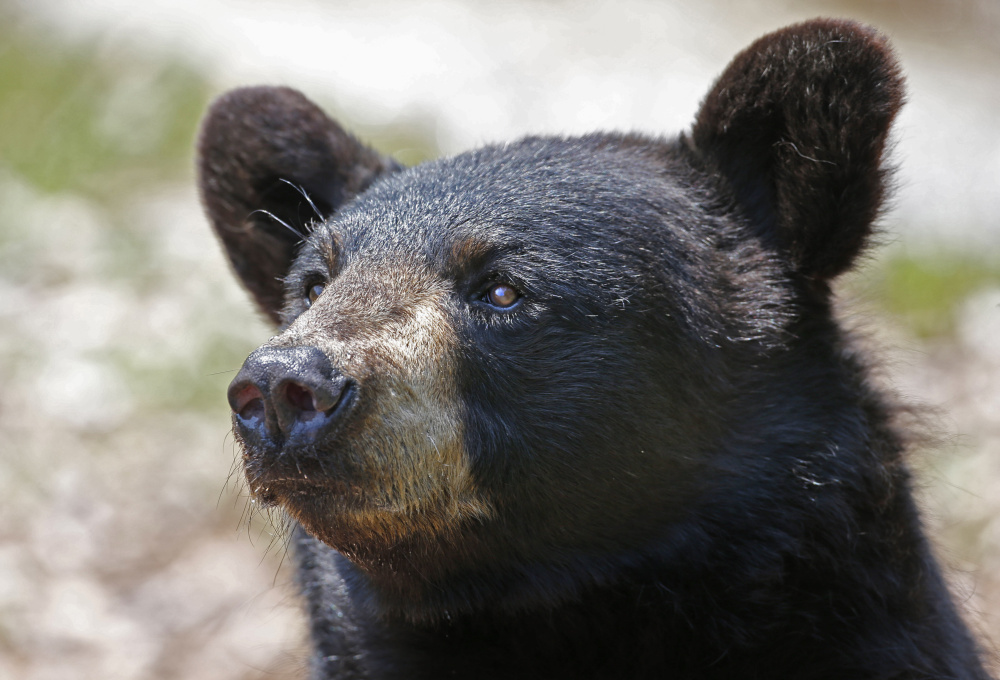In 2004 and again in 2014, wildlife biologists in the Maine Department of Inland Fisheries & Wildlife told the people of Maine that baiting, hounding and trapping bears were necessary management tools, without which Maine’s bear population would explode. The department provided no science to back up their claim.
In a 2014 YouTube video, IF&W wildlife biologist, and now commissioner nominee, Judy Camuso made the following statement in opposition to the bear-baiting referendum under consideration at the time, “Without the use of bait, hounds or traps, the department’s ability to manage our black bears will be crippled. Those methods account for 93 percent of our harvest. If we lose those methods, our bear population will explode. The level of nuisance complaints will increase, and the severity of those complaints will increase. People will start seeing bears much more regularly, in their backyards, in schoolyards, in playgrounds. It’s going to become a much more common occurrence to have bears in much closer proximity to people than we currently do. Maine’s bear management program works. It is based on sound science and long term monitoring. We have the longest term monitoring program in North America. We have more scientific data than any other state in the nation. We have the largest bear population in the East and we have relatively few complaints. Our program is working and it is effective and that is why the department is opposed to this (bear) referendum.”
We now know that IF&W’s bear management program is a hoax with no basis in science.
In 2015, researchers at the University of Southern Maine produced a paper titled “Controlling the Black Bear Population in Maine”.
One of the conclusions they reached was that “using bait increases the black bear population to very high levels.” This claim has been made by wildlife advocates for many years and has been ignored by IF&W. Key information compiled by USM researchers included: (1) IF&W states that the carrying capacity for bears is approximately 32,000 (the current population is approximately 6,000-8,000 above carrying capacity); (2) Many Maine bears are now producing cubs annually rather than semi-annually and litter size has increased to an average of three cubs; (3) The abundance of natural foods (typically beechnuts) is cyclical (greater abundance every other year) and the provision of human food compensates for the lesser abundance of natural foods as evidenced by increased cub production.
Maine has a state-endorsed bear-feeding program. The USM study concluded that if the feeding program were stopped, the population would initially decrease and then level off at less than 35,000 animals, where it would stay based on estimates of the carrying capacity. Continuing the feeding program will grow the bear population to well over 40,000 animals.
The science-based conclusions of the USM team are exactly the opposite of claims by IF&W that the bear population will “explode” if Maine’s bear feeding program were stopped.
The purpose of Maine’s bear-feeding program is, in my opinion, to provide more and bigger bears for hunters and trappers, and more revenue for the state and the bear-hunting industry. If that is its intent, it has been very successful.
If its intent really was to control the bear population, as claimed by IF&W, the program would be considered an abject failure, as evidenced by a 60 percent increase in the bear population since the 2004 bear referendum, despite continued baiting, hounding and trapping — the three management tools that IF&W claims are necessary to “manage” the bear population.
This year we can expect bills in the Legislature to allow a spring bear hunt and increase the number of bears that can be taken by each hunter. This, I believe, is all part of the plan to grow the population to an unacceptably high level then make the case that more bears need to be killed.
The researchers at USM have proven otherwise, however. They have shown that Maine only needs to stop its bear-feeding program to allow the bear population to decrease and remain at lower, sustainable levels.
Of course, this would mean the end of training bears to answer the dinner bell so they can be shot at point-blank range while their head is buried in a barrel of food scraps.
John Glowa Sr. lives in South China.
Copy the Story LinkSend questions/comments to the editors.



Success. Please wait for the page to reload. If the page does not reload within 5 seconds, please refresh the page.
Enter your email and password to access comments.
Hi, to comment on stories you must . This profile is in addition to your subscription and website login.
Already have a commenting profile? .
Invalid username/password.
Please check your email to confirm and complete your registration.
Only subscribers are eligible to post comments. Please subscribe or login first for digital access. Here’s why.
Use the form below to reset your password. When you've submitted your account email, we will send an email with a reset code.